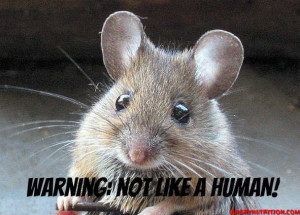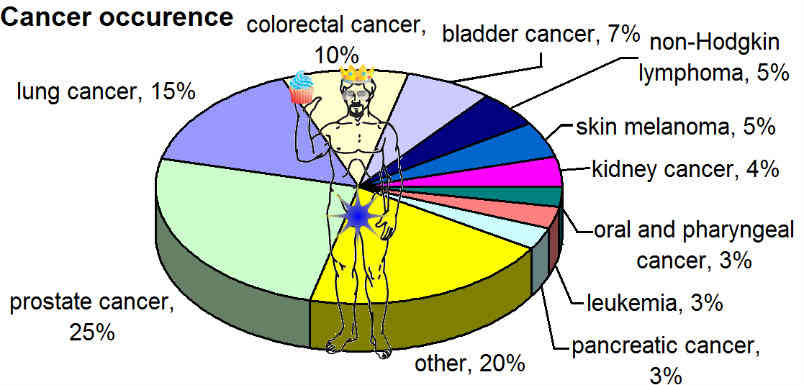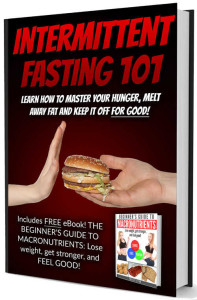Ok, this pissed me off so much I had to write something about it. I’m so sick of bullschyt claims from some study that is full of bad science. So, is protein bad for you?
Maybe you’ve heard of this study saying eating protein may give you cancer. No?
Then maybe you’ve seen a few headlines? “High protein diets as bad as smoking for middle-aged people” or “Diets high in meat, eggs and dairy could be as harmful to health as smoking” or “Middle-aged? Put down the meat” or “High protein diet raises cancer risk as much as smoking” or “Study says high-protein diets in midlife liked to high risk of premature death”.
I consider myself a scientist, and while I’m no Ph.D. or any kind of doctor, I do my best to understand the complicated nature of the human body. It’s not easy, but somehow I can absorb a lot of information. I know enough to call BULLSCHYT on this.
Is protein bad for you? Bad science says so!
Let’s break it down a bit here. Here’s my thoughts:
BS point 1: Protein raises insulin
Bullschyt. Pure protein, when metabolized, is broken down into amino acids. Those amino acids are burned for energy and/or shuttled around the body for repairing various tissues. While yes, the body will convert some of those animo acids into glucose for extra energy, that glucose level is very small and the subsequent insulin spike will be tiny and short-lived. You’d have to eat a ton of meat to get a significant insulin spike. (Now compare that to a slice of WHOLE GRAIN BREAD, which will greatly spike glucose and insulin levels!)
BS Point 2: Insulin and IGF-1 causes cancer
WELL I GUESS I BETTER NEVER EAT ANYTHING AGAIN!! Insulin is an essential part of the human body. It was one of the earliest evolved hormones in prehistoric creatures and it serves many essential functions in the human body. While it may play some very small part of the horribly complicated process of disease, it’s also something that KEEPS US ALIVE!
While yes, insulin does play a hand in many chronic diseases, cancer included, THAT DOESN’T MEAN IT CAUSES IT!
I gotta admit something… I’ve been terrified of the chance of getting cancer for many years. It’s something that I’ve feared all my life, as I’m sure many of you have. I’ve done a ton of research on cancer, and I can’t believe the sheer diversity of it. It’s a very wide range of diseases, each with individual causes that are not very well understood. To say that one thing or series of things (such as protein consumption) causes cancer is very misleading.
As Jason Cholewa, Ph.D., puts it:
“If IGF-1 and insulin caused the development of cancer then we should all avoid exercising (as exercise is a powerful stimulator of IGF-1 release) and eating as every time we eat (especially carbohydrates) insulin is released to maintain normal blood glucose levels.”
BS point 3: Eating meat will essentially lead to cancer
Is protein bad for you? Does it cause cancer? I think of it very differently. I’ve read that tumor cells are essentially mutated cells with a 200-300% glucose metabolic rate. Using a ketogenic diet, which is mostly fat and protein, you dramatically lower the blood glucose levels and increase the blood ketone levels.
Since all your healthy cells can run off ketone bodies and fatty acids, you’re effectively starving off the cancerous cells. People have used keto to treat cancer. While this isn’t a miracle cure for every cancer, it’s certainly something to pay attention to.
BS Point 4: Meat-based deaths were significant:
Poor statistics… it’s always so badly abused by bad science. Here’s a good introductory video on how to tell good science from bad science and what the statistics REALLY mean. Again I have to quote Jason Cholewa, Ph.D.:
There were only 113 determinable deaths in the total cohort of 6,381. That is < 2%, and hardly something significant. In the low protein cohort 10 people died of cancer. In the high protein diet 17 people died of cancer. This is around .1% and .17%. That is a difference of .7% increase in cancer mortality, not the 70% suggested by the authors.
 Bonus BS point: Studies done with rodents should ALWAYS be taken with a massive grain of salt. Rodent bodies are very different from ours, they may share many of the same pieces, but those pieces function differently.
Bonus BS point: Studies done with rodents should ALWAYS be taken with a massive grain of salt. Rodent bodies are very different from ours, they may share many of the same pieces, but those pieces function differently.
Case in point, mice are herbivorous. Their bodies are not made for high protein intake like ours.
To further the point, aspartame studies done with rodents tell us it’ll give us cancer… in astronomically high doses. As Martin puts it:
“…the rodent studies used such extreme dosages that it would be impossible for any human to ingest that amount save from walking around with an IV-drip of pure aspartame 24/7.“
Fun fact: Victor D. Longo, one of the major designers of the study, has equity interest in “L-Nutra“, a company that develops “medical food.” This “medical food” is all plant-based. Perhaps this guy conjured up this schyt to help sell more of his crappy product? Just maybe?
Long story short, don’t believe everything you see in headlines. Bad science is everywhere and you need to keep vigilant and not let it absorb into your subconscious. I’m sure I’m doing something that 5 years from now will seem foolish, but until I receive enough evidence to the contrary, I’m going to keep doing it.
Is protein bad for you? Read between the lines!
Unlike many people, I constantly challenge my views and I absorb conflicting information. That’s how good science works, you have to constantly check the data and find patterns and correlations. Otherwise you’re fooling yourself!
Here’s my general recommendation: Eat meat, eat veggies, eat fruits. Get some kind of exercise whenever possible. Avoid processed crap and don’t smoke or drink so much. Consume everything in moderation.
There, that sentence alone is statistically proven to extend your life by 20%! (Yossif et al., 2014) Besides, if you get your protein via meat raised humanely and/or grass-fed, there’s a host of wonderful health benefits that comes with it. I’ve said it many times before and I’ll say it again: If the animal is healthy and happy, you will be too. Here’s at least one success story.
Also, read the hilarious responses on this Washington Post Facebook page. I love it when people call these journalists on their BS! As one guy puts it: “All I know is that every single person who ate fresh carrots and walked 2 miles a day in 1867 is now dead. Every. Single. One.”

Fruit = cancer?
Just to play devil’s advocate real quick, here’s some info on people who’ve lived to be over 100 years old. Some eat a diet that is low on meat, which is fine.
If you want to take the anti-meat stance to the extreme, go ahead and try to be a fruitarian. Worked great for Steve Jobs! (Nevermind.)
Anyways, eat right and you’ll be fine. Don’t worry so much.
Your friend,
-Yossif





Hi Yossif,
As always, you raise the important questions, address controversies, raise awareness and provide helpful information.Thank you so much for sharing this insightful post on the Healthy, Happy, Green & Natural Blog Hop! I appreciate it!
Thank you as well for the useful blog hop! Glad you enjoyed it!
-Yossif
As a scientist, who has been published in peer review journals and who has been educated in animal model experimentation, I find your tidbit on mice absolutely ridiculous, appalling and unfounded. You should not be giving advice on animal models. Mice are actually an EXCELLENT model of animal physiology. The fact that they are herbivorous has nothing to do with protein studies; there are ways of controlling for protein intake in mice compared to humans to account for the proportion of protein mice would get in comparison to humans. You only need to look at experimental diets and lab animal food to figure this out. Perhaps you are attempting to draw comparisons between plant protein and animal protein, if you were, then awesome, if you weren’t then you completely missed the mark. You have some great information here including the discrepancy between statistical significance and clinical significance, which more scientists should take into consideration, but telling people to “take mouse studies with a grain of salt” when that is the basis of getting approval for human clinical trials is RIDICULOUS.
I agree that there are many cases where animal studies are useful as a comparison to human studies. However, I think in some cases, it’s hard to draw conclusions on how it will effect us humans in the long run when small rodents are the test subjects. At the very least, my point was that these News headlines shouldn’t jump the gun and tell people that meat = cancer, as they so love to do. Animal studies are one piece of the very large puzzle that leads to scientific conclusions.
However, I am no expert on animal studies vs. human studies so I will certainly be willing to learn more. My basis for this was largely the natural dietary and lifestyle differences between mice and humans being a confounding aspect. Plus, in most respected health and wellness circles, animal studies are usually trumped by direct human studies. If you have any reading material to help me learn more, I’m all ears. I’m here to learn!
Thanks,
-Yossif